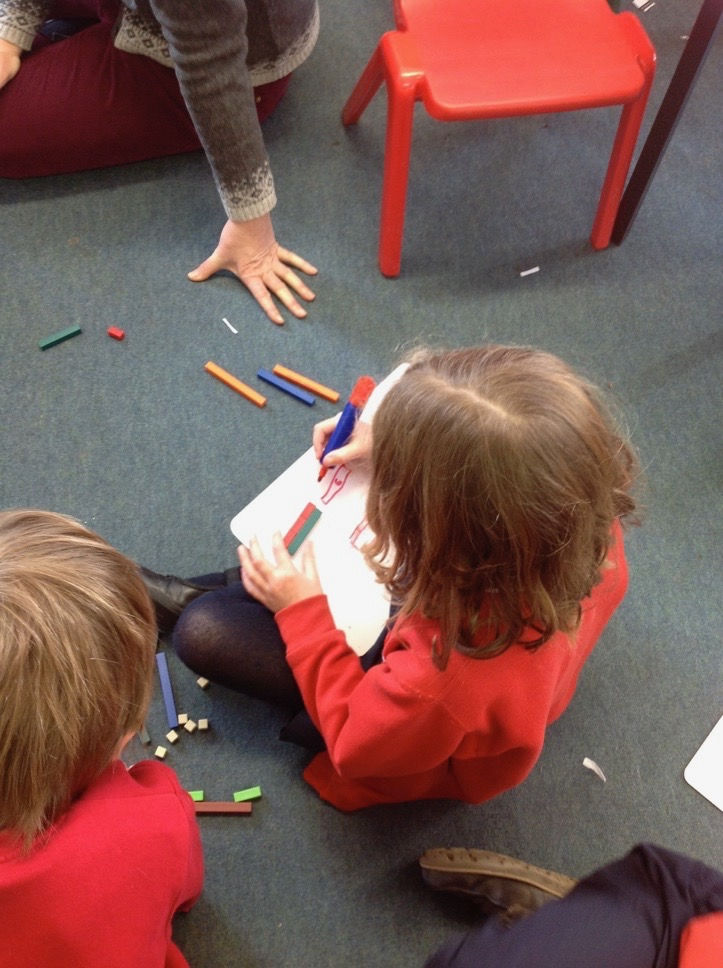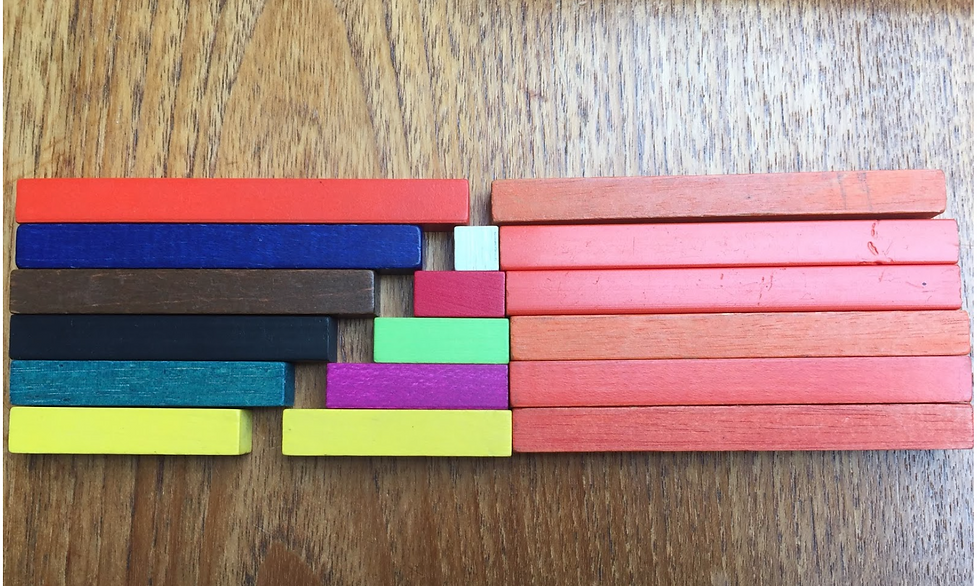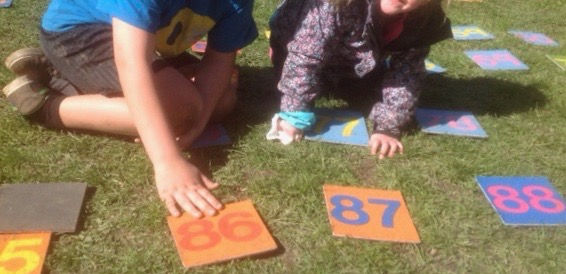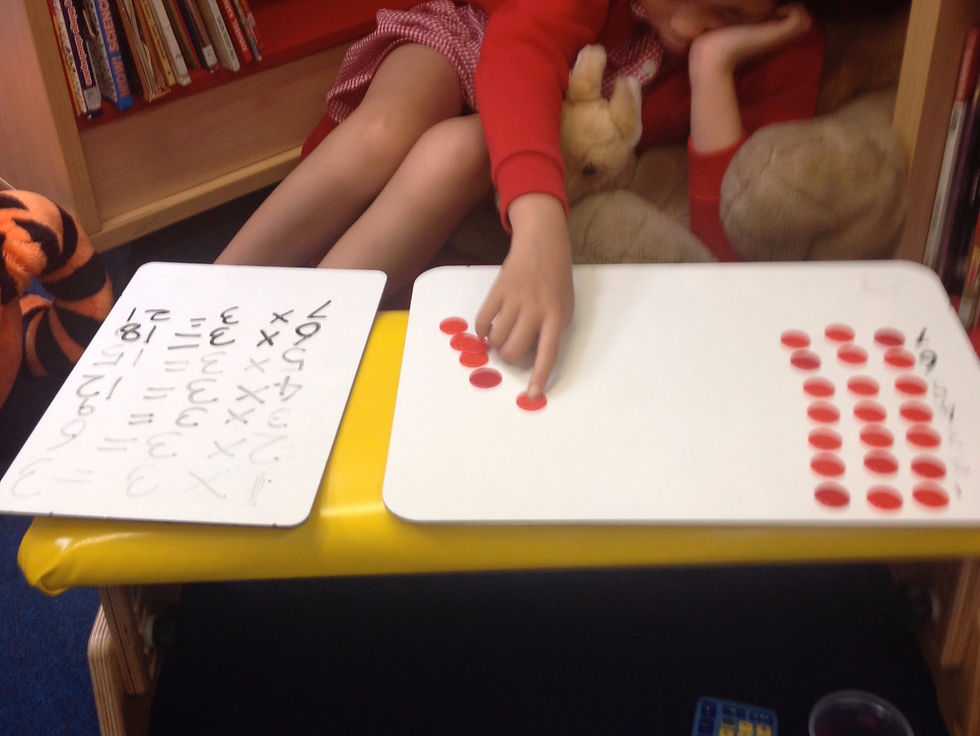On learning nothing.
- Dr Helen J Williams
- Mar 8, 2020
- 4 min read

(Learning nothing?)
In re-visiting my blogs of the last 3 years I realise I owe a debt to Dylan William, whose often controversial tweets have spurred me to think hard about learning (and why I react so strongly to them!).
Here are my thoughts on students 'learning nothing", from the summer of 2018. I begin with the tweet from Dylan that initiated these thoughts.
"The idea that students can be intensively, productively and successfully engaged in a task and yet learn nothing as a result seems to me to be the most profound idea in all of educational psychology."
So tweeted @dylanwiliam referring to mathematics classrooms. And his statement has worried me since I read it.
Here are my thoughts.
Of course students can be "intensively, productively and successfully engaged" within a maths lesson, but not doing any mathematics. In this category I include what I call the 'colouring' tasks you find on many maths worksheets. Many of these do not involve the students in any mathematical thinking at all. They are not engaged in mathematics.
Of course students might not be learning what I intended them to learn, and maybe this is what this statement means. When planning I tend to think about 'learning possibilities' rather than objectives (Bird 1991). I have in mind possible mathematical trajectories where a task may lead. This includes the constant re-framing of the task according to what I notice going on, fed by the multitude of in-the-moment decisions I make. These rely on my experience and knowledge of both the mathematics and the learners and this changes every lesson, as the learners respond to what plays out. This is how learning is built. It certainly does not involve me concluding someone has learned "nothing".
What is learning "nothing"? How would I know this? How would I recognise "learning nothing"?
Learners might be involved in something and might not appear to be 'learning'; perhaps for example when they are spending time handing manipulatives. Maybe I have been working with some Y1 children on number bonds within 10 and 20. At the end of the session perhaps they are unable to answer my question "What number pairs up with 11 to equal 20?" Does this mean they have learned "nothing" during that task? Do they understand my question? What can they tell me? If they are unable to answer me verbally, maybe they can answer whilst looking at an image?

(Ten and ? = 20)
Perhaps the statement confuses performance with learning. Maybe (some? all?) my children are unable to perform the required objective, in this case, to name the complementary pairs of numbers that, together with 10, total 20. But they (some? all?) may well have learned, if I have crafted my lessons well, that there are a finite number of combinations and begin to see links to the pairs of numbers that equal 10. It is my job, in each and every interaction, to find out what they havelearned and build from there.
How might I craft my lesson so that my pupils learn to think mathematically? In this example the children may have been building and discussing sticks of cubes, or Cuisenaire ‘trains’, to total 20. But in order for them to be "intensively, productively and successfully engaged" in mathematical thinking, I will, over time, ask them:
• to start with an orange rod
• to find quick ways to be sure there are always 20
• to organise the pairs and look for (and explain) a pattern they notice,
• to write the horizontal number sentence to match each row in the 'wall',
• to play "Which rod/number is missing?" as they take it in turns to hide their eyes and remove one rod. We'll then ask each other: "And how do I know?"
This is a suite of lessons (or sessions). In order for them to be "intensively, productively and successfully engaged" in mathematics, the practical task is one part. And may last a while. Maybe longer than 'one lesson'. So is it correct to assume that these students were, at any point "...intensively, productively and successfully engaged in a task and yet learn(ing) nothing as a result"? If I view this as one small episode in a series of planned interactions where my students and I 'meet' ways of making 20 using different resources (coins, bead-strings, patterns ...) and to link this to other mathematical knowledge, we have plenty of opportunities to re-visit this to ensure they have learned this particular 'something'.
Learning takes place over time, not necessarily within one lesson (to paraphrase Pete Griffin @petegriffin) and the current apparent drive to make sure that every student is learning something every lesson (or every interaction) might lead me to conclude that "students can be intensively, productively and successfully engaged in a task and yet learn nothing as a result."

My conjecture, after thinking about this statement, is that it is not possible to be intensively, productively and successfully engaged in the mathematics of a task and learn "nothing". That is my job as a teacher, to, intensively, productively and successfully engage learners in mathematics. My teacher-questions and interactions should focus the students on the mathematics; encouraging explaining, describing, reasoning, predicting and link-making. Tasks that do not include this, whether or not they are deemed to be 'discovery' or 'practical' or 'practice' or 'retrieval’ or ‘direct instruction' are not mathematics tasks. Even when they take place in a mathematics lesson.
I am not sure that the idea Dylan William refers to in this tweet is profound. It is either blindingly obvious or lacks nuance in considering learning. More worryingly, it might be used to denigrate ways of working in mathematics lessons that take time, and that include exploration, inquiry, discussion and handling manipulatives. It might be used for promoting direct instruction by an adult as the only effective way to teach and learn mathematics. And that is what concerns me.
References:
Bird, M. H., (1991) Mathematics for Young Children: An active thinking approach. London; New York: Routledge
Griffin, P. (1989) Teaching takes place in time, learning takes place over time. Mathematics Teaching Journal 126. ATM : Derby





Comments